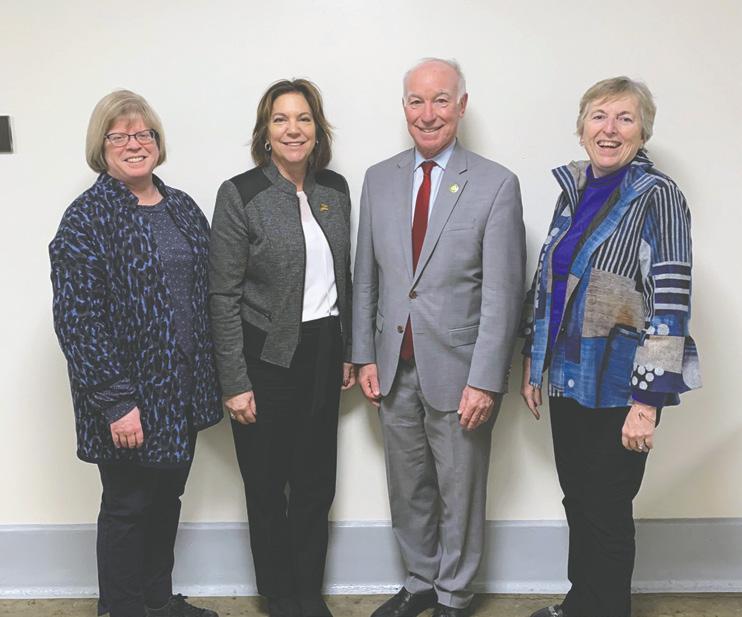
1 minute read
CABE ADVOCATING FOR PUBLIC EDUCATION IN WASHINGTON
The General Assembly established a working group to examine and make recommendations concerning the consolidation or elimination of unnecessary, obsolete or redundant professional development requirements, and in- service training requirements. CABE was responsible for convening the group to build on the recommendations of the 2017 Task Force on Professional Development and In-service Training Requirements for Educators. Required trainings for educators remain un-wieldy and disconnected from the definition of high-quality professional learning. A top priority for this working group was to focus on meaningful professional learning and to streamline the statutory “compliance” requirements to better meet the learning needs of educators, which will, in turn, result in better outcomes for Connecticut’s children.
Working Group Recommendations
Advertisement
Implementation
• Provide greater flexibility for districts to determine frequency/ reoccurrence of trainings;
• Differentiate which staff are required to complete specific training and connect completion of training for compliance with certification renewal in an online platform; and
• For any new training requirements, allow for, at students.
CABE joined school board members from around the country in Washington, D.C. recently for NSBA’s Equity Symposium. Attendees heard a keynote from Dr. Freeman A. Hrabowski, III, an advocate for science and technology education who was also a keynote speaker at the 2018 CABE/CAPSS Convention. Dr. Hrabowski urged board members to understand every child’s story, and to work with their communities to support student achievement. Keynoter Dr. Amy Price Azano, Founding Director of the Virginia Tech Center for Rural Education asked board members to consider whether our policies are mitigating or exacerbating the opportunities for
In his opening remarks, NSBA Executive Director and CEO John Heim encouraged attendees to consider how “equity” could mean different things to different students, including access to high-quality teachers, advanced placement courses, reliable Wi-Fi, or even buildings with working heat. He encouraged board members to look at their data. “Where are there disparities among the students you serve? If there’s an underperforming school – or segments of a student population within your school district, how are your addressing it?”
Berlin Board President Julia Dennis, member Dr. Kari Sassu, and Superintendent Brian Benigni presented a workshop addressing strategies to keep a district moving minimum, a 1-year preparation period before requirements go into effect, along with state resources for implementation.
Content
• Delete redundancies that overlap with requirements outlined elsewhere in statute; and
• Clarify the distinction between in-service training and professional learning that advances teaching and learning.
Process
• Tie professional development requirements to certification renewal.
• Establish a formal Educator Professional Development Council to serve as a long-term








